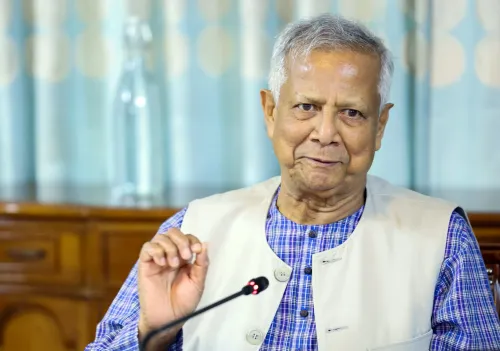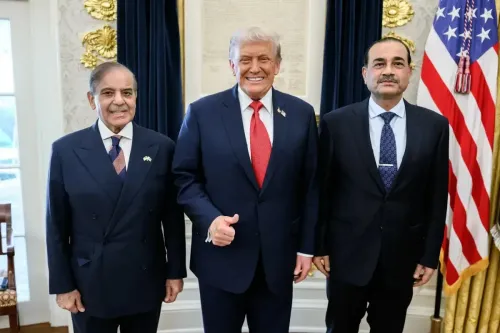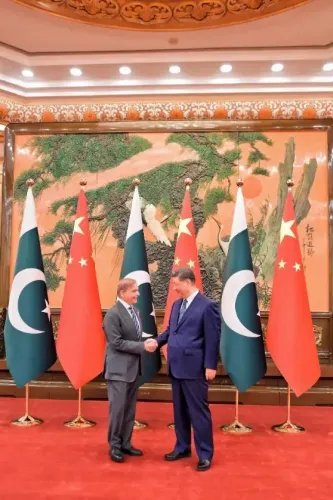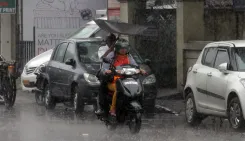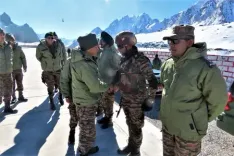How is Pakistan’s Crackdown on TLP Highlighting a Growing Crisis?
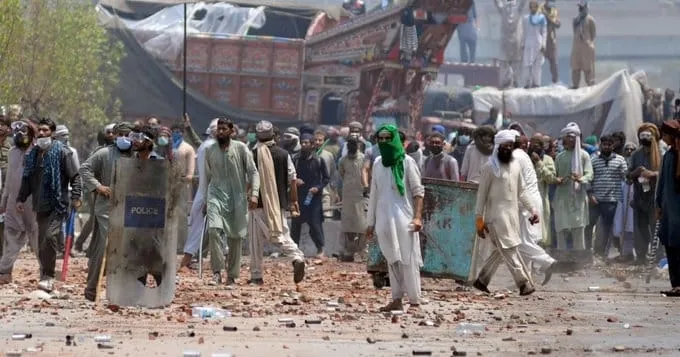
Synopsis
Key Takeaways
- Escalating violence linked to TLP protests threatens national stability.
- Government actions may damage international relations, particularly with Western nations.
- Deep societal divides are exacerbated by religious and geopolitical issues.
- Failure to mediate unrest could lead to a cycle of protests and crackdowns.
- Effective governance and dialogue are essential for future stability.
Islamabad, Oct 21 (NationPress) The Pakistani government's approach to the recent demonstrations by the Tehreek-e-Labbaik Pakistan (TLP) highlights a deepening national crisis characterized by violence, repression, and strategic errors, as reported on Tuesday.
The report indicates that while officials argue that decisive actions are necessary to avert turmoil, the repercussions on Pakistan's social cohesion, democratic image, and ties with Western nations are both immediate and profound.
“The latest protests spearheaded by the TLP have once again plunged the nation into political disarray, revealing significant divides within both society and governance, jeopardizing Pakistan’s relationships with crucial international allies. In the previous week, violent confrontations between TLP supporters and law enforcement in Punjab province resulted in the deaths of over a dozen individuals, including police personnel, while authorities implemented severe measures to suppress dissent,” stated an analysis from Athens-based Geopolitico.
“The fallout from this turmoil extends beyond mere violence, impacting Pakistan’s internal stability and its reputation with Western powers,” the report continued.
The unrest escalated when the TLP, recognized for its extreme religious ideology and history of mobilizing large protests over blasphemy and anti-Western issues, initiated a “Labbaik Ya Aqsa Million March” towards Islamabad. The group advocated for both pro-Palestinian policies and actions against Western diplomatic interests. Their supporters congregated near Lahore, aiming to reach the U.S. embassy in the capital to protest Western stances related to the Gaza conflict.
“The protests swiftly devolved into violence, with demonstrators throwing stones, setting public vehicles ablaze, brandishing makeshift weapons, and, as reported by officials, engaging in indiscriminate gunfire resulting in casualties among both civilians and security forces,” the report noted.
This report underscores that these incidents arise from Pakistan’s ongoing vulnerability to mass mobilization driven by religious fervor, repeatedly showcasing the state’s inadequate capacity for mediation and law enforcement, which reinforces perceptions of governance inadequacies.
“With the TLP now reporting hundreds of casualties among its ranks and the public becoming increasingly divided, the environment is ripe for further unrest. The group’s protests have traditionally centered on emotionally charged religious issues, but they are now intertwined with geopolitical grievances, complicating the government's attempts to manage and negotiate,” the report emphasized.
“Unless new strategies are implemented that balance maintaining public order with effective engagement, Pakistan risks becoming entrapped in a relentless cycle of protests and crackdowns that undermines both internal stability and external credibility,” it concluded.

